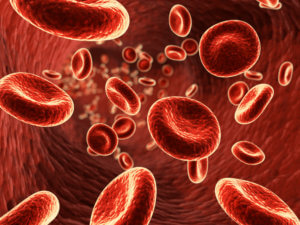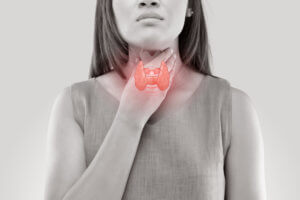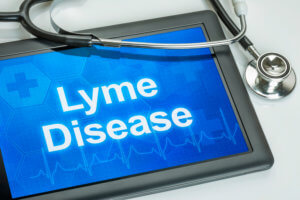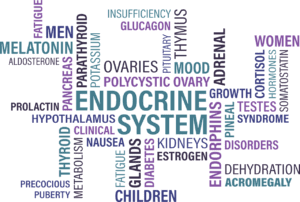Constantly feeling tired all the time is unfortunately becoming a new normal for many people. It often gets brushed aside as ‘just a part of life’, but more often than not, there’s an underlying cause behind the fatigue.
The difficult part is pinpointing the exact cause of your tiredness. All systems in your body are connected directly or indirectly, and a malfunction in any one of them stresses the rest of your body. Deficiencies, sensitivities, and other hidden culprits also play more of a role than you may realize.
But the good news is fatigue is not insurmountable.
With commitment to some serious ‘detective’ work, you can discover which of the many causes of feeling tired is behind your symptoms and address it at the root.
Constant Fatigue: A Growing Problem
We all know the grogginess that comes from getting to bed way too late or the exhaustion that stems from an over-busy week. These are examples of what could be called ‘normal tiredness’. You overdo it, feel rundown, rest, and recover your energy.
What is not normal is a constant state of feeling tired with no recovery and no easily identifiable cause.
There aren’t any hard statistics about this type of fatigue, but it seems to be affecting more and more people. And if this scenario sounds familiar to you, don’t ignore what your body is telling you. Constant fatigue is a sign that something is wrong and needs to be addressed.
When it comes to getting answers, finding a quality health expert (conventional MD, naturopath, etc.) can be invaluable. However, many times you need to be your own best health advocate and dig into research yourself.
To give you a starting point, here’s a look at the top common causes of feeling tired all the time, including ‘hidden culprits’ that don’t come with a simple diagnosis.
Common Health Issues that Cause Fatigue
Anemia (Iron Deficiency)

Anemia is a condition in which your body lacks enough red blood cells to carry oxygen to tissues and organs. One of the central symptoms of anemia is fatigue, along with dizziness, shortness of breath, and general weakness.
The most common type of anemia is iron-deficiency anemia. Iron is an essential nutrient involved in the production of hemoglobin, which is a protein in red blood cells that carries oxygen. Anyone can become deficient, but factors like heavy menstruation, pregnancy, and eating a plant-based diet without being aware of how to maintain healthy iron levels may put you more at risk.
Anemia is fairly easy to diagnose with the right bloodwork, and the fatigue should disappear once your iron levels go up.
If you tend to avoid meat and animal products, consuming vitamin C alongside plant-based sources of iron can increase the bioavailability of this mineral, helping you avoid deficiency in the future.
Vitamin B-12 Deficiency
Vitamin B-12 is another nutrient involved in energy production at the cellular level. A deficiency is one of the top causes of feeling tired all the time and may also contribute to brain fog, mood swings, and other symptoms.
Though not always easy to identify, low B-12 levels are fairly common. In the U.S., estimates put deficiency at anywhere from 15% of the population all the way up to 39%.
Once again, those who follow a plant-based diet without being aware of how to maintain healthy B-12 levels are at a higher risk for vitamin B-12 deficiency. Meat, fish, dairy, and eggs are the top B-12 sources, and obviously all of these are animal-based. Older adults may also be at higher risk because the body tends to absorb less B-12 with age.
If you suspect a B-12 deficiency may be behind your fatigue, bloodwork can confirm these suspicions.
And if you avoid animal products, turn to nori seaweed, fortified nutritional yeast, or a high-quality B-12 supplement to boost your intake.
Thyroid Disorder

Your thyroid gland is a butterfly-shaped gland that sits at the base of your neck. It’s sometimes referred to as a ‘master gland’ because it secretes hormones that affect practically your entire body.
One of the key functions of the thyroid gland is to help regulate metabolism and energy levels. When your thyroid gland doesn’t produce enough thyroid hormone— a condition known as hypothyroidism— symptoms like extreme and constant fatigue, depression, and weight gain can appear.
The exact cause of thyroid disorders varies (and is often unknown).
However, they are very common with an estimated 12% of the U.S. population dealing with a thyroid condition during their lifetime. More to the point, up to 60% of those with a thyroid disorder are unaware they have one.
This means checking for thyroid issues is very important if you are constantly tired. Sometimes, discovering the problem takes more detailed bloodwork than is standard, and you may want to visit a hormone specialist.
Vitamin D Deficiency
Vitamin D is a very unique (and essential) nutrient that acts like a hormone in your body. Not getting enough of it is one of the major underlying causes of feeling tired because it is critically involved in energy production and mood.
Astonishingly, about half of the world’s population have low vitamin D levels, including around 40% of the U.S. population!
As you may know, your body manufactures vitamin D on its own through skin exposure to sunlight. This means there aren’t many food sources of vitamin D, although certain fish and mushrooms grown in the right conditions do contain some of this essential nutrient.
Because of this, vitamin D deficiency tends to be most severe for those living in northern regions, particularly during the winter. It’s thought to be a major contributor to seasonal affective disorder (SAD).
The best natural way to overcome this type of fatigue is to get more sunlight. When the sun isn’t out, you may want to consider a quality plant-based vitamin D supplement.
Digestive Disorders

For obvious reasons, most people associate digestive disorders with symptoms like upset stomach, abdominal pain, diarrhea, etc. However, fatigue is also a major component of any chronic digestive issue.
When your body isn’t digesting and processing food correctly, it also isn’t absorbing all the vital nutrients found in food. This means you’ll have less overall energy and be at a greater risk of a nutrient deficiency that leads to more fatigue.
Some common digestive diseases that cause fatigue include celiac disease, Crohn’s disease, ulcerative colitis, and irritable bowel syndrome.
Particularly if you notice your tiredness increase after eating, you may want to investigate the possibility of a digestive disorder. It can be lurking in the background, even if you don’t have major digestive symptoms.
Blood Sugar Imbalance
Blood sugar imbalances can be a sneaky cause of feeling tired all the time. In fact, fatigue is a major symptom of both type 1 and type 2 diabetes and can be caused by either high or low blood sugar levels.
All of the cells in your body need a substance known as glucose for energy. It comes from your body breaking down more complex foods into simple sugars. The glucose is then absorbed by cells through the help of insulin.
If there simply isn’t enough glucose in your blood to “feed” you cells (known as hypoglycemia), fatigue and other symptoms will follow. On the flip side, if your body doesn’t produce enough insulin or use it effectively, glucose accumulates in your blood instead of getting absorbed by your cells. Again, this can result in constant tiredness.
The best way to naturally avoid blood sugar imbalance is to get away from the standard western diet. Cut out high sugar and heavily processed foods and focus on antioxidant-rich plant foods instead.
Other Hidden Causes of Feeling Tired
Lyme Disease

In certain areas of the world (like the northeastern U.S.), Lyme disease has become something of an overlooked epidemic. Known cases in the U.S. have increased to 300,000 per year and continue to rise.
Transmitted by ticks, Lyme looks a lot like other diseases and often gets misdiagnosed. It can easily be missed by bloodwork as well, since the current FDA-approved tests are known to return false negatives.
Common symptoms of Lyme disease include chronic fatigue, fever, muscle and joint aches, rash, and brain fog. Many people never get the ‘bull’s eye’ rash that is one of the main indicators of Lyme. Some never even realize they were bitten by a tick, which is what makes this disease a ‘hidden culprit’ behind multiple health problems.
Conventional treatment for Lyme disease consists of a course of antibiotics. However, many people experience lingering symptoms, including fatigue.
Natural protocols do exist and usually involve antimicrobial herbs. Some, like Japanese knotweed, have now been shown in lab studies to inhibit the bacteria that causes Lyme.
Food Intolerances
Even if you don’t have a full-blown digestive disorder, what you eat may still be affecting your energy levels.
Having a food intolerance means that your body doesn’t digest a particular food or food group well. (This is different from a true allergy, which is an immune reaction.) An estimated 15-20% of the population has one or more food intolerances. They can cause both gastrointestinal symptoms and a feeling of being tired all the time.
The most common food intolerances include dairy and gluten, but you can experience sensitivity to any type of food.
There are some tests available to check for food sensitivities. However, the most reliable method is to work through an elimination diet— cutting back on foods one by one until you find the culprit(s).
Hormone Imbalance

It’s fair to say that hormone imbalance is extremely common nowadays, although there’s no way to measure just how many people it impacts. Almost every aspect of modern life (diet, sedentary lifestyle, overworking, etc.) puts a huge strain on your hormonal health.
One problem that may especially be connected to low energy from hormonal imbalance is the excess of ‘endocrine-disrupting’ chemicals in many personal care products, cosmetics, and cleaning products.
In addition to working toward reducing and eliminating these products in your life and choosing clean, USDA Certified Organic versions instead, the best way to help hormonal imbalances is, in general, to live a healthy lifestyle.
If you’re interested, head here for four specific key natural steps to help overcome hormone imbalance.
Circadian Rhythm Disruption
Sometimes constant fatigue is simply due to a lack of quality sleep.
Unfortunately, getting better sleep isn’t a simple matter for most people. Much of this is due to major disruptions to circadian rhythm, the internal process that regulates your sleep-wake cycle.
There are multiple factors that affect circadian rhythm, but exposure to blue light may be one of the biggest. Blue light is naturally found in sunlight and has an energizing effect during the day. However, it’s also emitted by screens (phone, television, tablet, etc.) and many light bulbs.
When your eyes absorb blue light in the evening, your body may suppress melatonin (the sleep hormone), causing a host of sleep issues. In the long run, overexposure to blue light can completely throw your circadian rhythm off track.
Restoring circadian rhythm is not an overnight fix. Minimizing blue light and screen time in the evening is key as is getting sunlight exposure during the day. Also, commit to 7-8 hours of sleep each night.
Chronic Stress and Toxin Overload

These two ‘hidden culprits’ are listed together because they are major root causes of feeling tired. They also contribute to most of the diseases/disorders that cause fatigue.
Research has shown that chronic stress may actually cause structural changes in your brain, likely leading to mental fatigue. It’s also a major contributor to chronic inflammation, which in turn contributes to multiple diseases. Elevated levels of cortisol, the stress hormone, can throw off hormonal balance as well.
Toxin overload is another modern epidemic. Everything from the food you eat to the personal care products you use has the potential to be filled with harmful chemicals. Even something like toxic mold lurking in your home can cause unexplained symptoms, including fatigue.
From a holistic perspective, managing stress and minimizing your exposure to toxins is critical to good health. It’s hard to recover energy, whatever the underlying cause, if your body is constantly under ‘attack’ from stress and toxic chemicals.
Eat organic when possible and always read the label before buying a product. Watch out for hidden indoor air pollutants as well as toxins in drinking water. And don’t forget to make mental and emotional health a priority!
Next Up: The Magnesium Deficiency Problem
As you can see, there are numerous potential causes of that “tired all the time” feeling. And unfortunately, this only covers some of the most common reasons for fatigue. There are other possibilities out there, but exploring the ones outlined here gives you a good starting point.
One place to start if you want to research more causes of fatigue is diving deep into another essential nutrient: magnesium. Getting enough magnesium is key to energy production, quality sleep, and mental health. As you would imagine, a deficiency can lead to fatigue and a host of other symptoms.
Read about it here to learn more: The Essential Role of Magnesium, Signs of Deficiency, & Top Magnesium-Rich Foods.



Thank you for such a great article. I no longer listen to the audio presentations, from websites, that ramble on and on I merely delete the emails from my computer..
I have jotted down the eleven plus ideas for being tired. I haven’t read through each of the blue
subjects yet but there is one more subject and that is perscription combinations. I take three prescriptions two being for A-Fib, one for thyroid.
I will go back now and research each of the blue subjects.
Thank you again for the INFORMATIVE article.
I have no Dad joke.
Love this comment: I no longer listen to the audio presentations, from websites, that ramble on and on . . .
I never did listen to them for more than a minute or two. They do just ramble on and on. Ridiculous!
Great article. I have been feeling exhausted lately. I requested blood work and my primary told me it isn’t any good. If we do it again tomorrow it will be all different. good grief. I hope I can find someone who will do the blood work! I do have fructose malabsorption. This food intolerance is not widely recognized and as a result rarely diagnosed in the medical community. A hydrogen breath test can be done to diagnose it.
Hi
Life Extension Foundation offers many blood tests, just go to their website and read about what they offer. The results go straight to you and show if you’re in healthy ranges or not. Also they have health advisers to answer your questions.
Thank You
not enough potassium can make you tired. as well.
Like Ms. Branch, I too rarely bother with rambling vids and usually skip over them right away so thanks for the informative article. Nutrition, as a hobby, made me aware of most of these, but isn’t heart trouble (sometimes hidden) a top cause of fatigue as well? You were so thorough with each addressed problem, I would have liked to have read more since heart disease is so prevalent
You forgot to add sleep apnea and long Covid. I am seventy and have been very fatigued all waking hours. A home sleep test my Doc ordered revealed “Acute Obstructive Sleep Apnea.” Hoping the CPAP treatment helps.
Thanks again for another great article. All ‘gifts’ gratefully received, copied, and pasted for reference library.
I am 90 and while I never get sick it has been awhile since I have felt well. I no longer drive because of vision problems. No one seems to know what to do with me or my 91 year old husband. The usual response is well what do you expect at your age.
A great & thorough review, thank you. 🤩If anyone has stamina, you’re up there.👍
We all have Covid fatigue, I believe, a weariness and awareness of the increased risk of exposure, the threat of yet another summer wave upon us… restrictions, self-imposed often out of health/wellness concerns and wanting to minimize risk – all contribute to fatigue, feeling defeated…
Thank you for a great article. I am so blessed to have found you or have you found me? Your information is always spot on and not just to sell products.
Recently experience low energy, but have been working a good amount. Temperatures have been high, and sometimes I perspire a lot.
Recently I think it’s dehydration from lack of electrolytes
Great informative article.
Thank you. Any info a Macrocytosis? Just started B 12 shots; and have celiac. Can’t find more info.